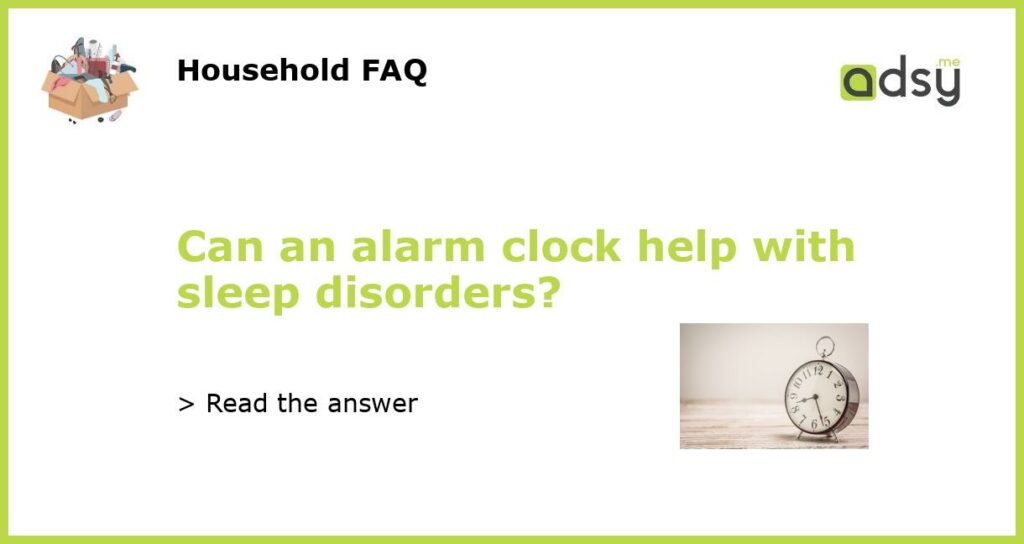What are sleep disorders?
Sleep disorders are conditions that affect the ability to sleep or cause abnormal behaviors during sleep. These conditions can result in daytime sleepiness, mood changes, and overall fatigue. Common sleep disorders include insomnia, sleep apnea, restless leg syndrome, and narcolepsy. While there are medical treatments available for these conditions, some people find relief with the use of an alarm clock.
How can an alarm clock help with sleep disorders?
Alarm clocks can be programmed to wake you up at the same time every day, promoting a consistent sleep schedule. This can be particularly helpful for people with insomnia or difficulty falling asleep. Additionally, many alarm clocks offer features such as soothing sounds or light therapy to help relax the mind and promote sleepiness. Some alarm clocks, such as those made by Philips, even use technology to simulate a natural sunrise, gradually increasing light and helping to regulate the body’s circadian rhythms.
What are the drawbacks of using an alarm clock for sleep disorders?
While an alarm clock may be helpful for some people, it is not a one-size-fits-all solution. People with sleep disorders should work with a medical professional to determine the best treatment options. Additionally, alarm clocks that rely on sound or light to promote sleep can be disruptive for some individuals. It is important to find an alarm clock that works for your specific needs and preferences.
What other non-medical treatments are available for sleep disorders?
There are a variety of non-medical treatments available for sleep disorders. These include relaxation techniques such as meditation, cognitive-behavioral therapy, and sleep hygiene practices. Sleep hygiene practices include creating a relaxing sleep environment, avoiding caffeine and alcohol, and establishing a consistent bedtime routine. Additionally, lifestyle changes such as regular exercise and a healthy diet can improve sleep quality.
When should I see a medical professional for my sleep disorder?
If you are experiencing persistent sleep difficulties, it is important to consult a medical professional. A sleep specialist can help diagnose the underlying cause of your sleep disorder and recommend appropriate treatment options. Untreated sleep disorders can lead to a range of health complications, including high blood pressure, diabetes, and depression.






